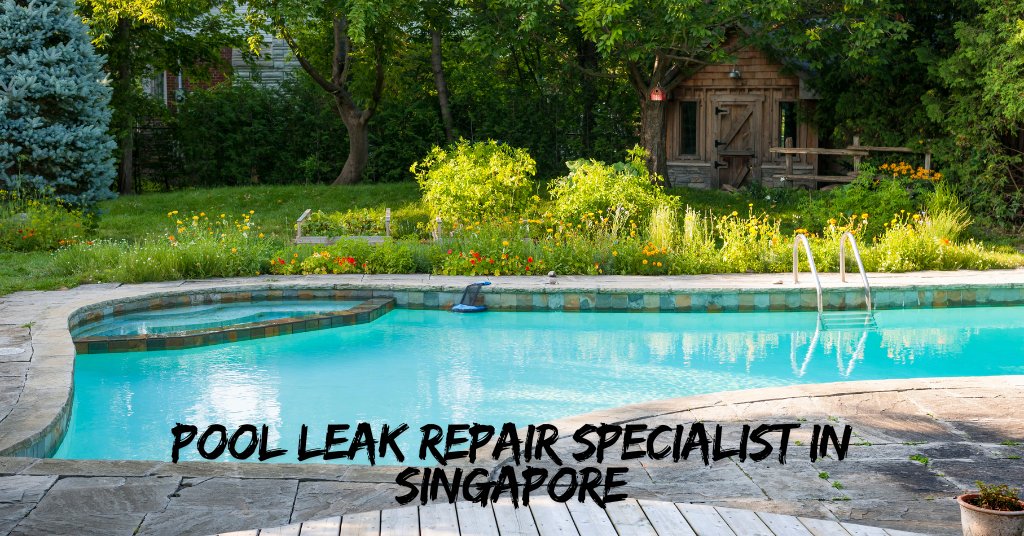Nothing ruins the joy of owning a swimming pool faster than realizing the water level keeps dropping for no clear reason. In Singapore’s warm weather, it’s easy to blame evaporation, but when you find yourself refilling the pool again and again, chances are you’re dealing with a leak. And trust me, even a tiny leak can turn into a major expense if left untreated.
That’s why many pool owners ask me the same question: How much does swimming pool leak repair cost in Singapore? In this guide, I’ll break down the common causes, early warning signs, actual repair costs, and practical ways to manage expenses, so you can protect both your pool and your budget.
Why Swimming Pool Leaks Happen in Singapore
Pool leaks are surprisingly common here. Singapore’s tropical climate is beautiful but harsh on construction materials. Heavy rains, constant humidity, and even ground shifts can weaken pool structures over time.
Here are some of the most common reasons I’ve seen:
- Tile and grout wear and tear – Over the years, water pressure and chemicals eat away at joints, leading to hairline cracks.
- Pipe leaks underground – Sometimes tree roots or soil movement can damage buried pipes.
- Equipment issues – Pumps, filters, and valves wear out, causing leaks around fittings.
- Structural cracks – Concrete pools, especially older ones, may develop small cracks that slowly expand.
Some of my clients are shocked to learn that even a tiny leak can waste thousands of liters of water a month. It’s not just about money; it’s also about sustainability, which is important in a country like ours where every drop matters.
Signs That Your Swimming Pool Might Have a Leak
I always tell pool owners: Don’t ignore the small signs. Spotting a leak early can save you a lot of trouble. Here’s what you should look out for:
- Unusual water bills – If your utility bill suddenly spikes, and nothing else has changed, suspect your pool.
- Constant refilling – Topping up the pool every week is normal, but if you’re doing it every couple of days, that’s a red flag.
- Soggy ground – Wet soil or patches of grass around the pool can mean water is seeping underground.
- Visible cracks – Tiny cracks in tiles or the deck area are often where leaks start.
- Evaporation vs. leak test – Here in Singapore, evaporation usually accounts for just a few millimeters of water loss per day. If your pool is losing more than that, you likely have a leak.
Swimming Pool Leak Repair Costs in Singapore – An Overview
Now let’s get to the big question: How much does swimming pool leak repair cost in Singapore?
Based on what I’ve seen in the local market:
- Minor repairs (like patching tiles or sealing small cracks) can cost around SGD 200 – 600.
- Leak detection services usually range from SGD 300 – 800, depending on the methods used.
- Plumbing repairs (especially if underground digging is required) may cost SGD 1,000 – 4,000.
- Major structural repairs can go up to SGD 10,000 or more, depending on pool size and severity.
Compared to other countries, Singapore’s prices are slightly higher because of labor costs and the need for specialized contractors. But quality here is generally excellent, which means you get long-term solutions instead of short-term fixes.
Factors That Influence Pool Leak Repair Cost
Every pool is different, so costs vary. Here are the main factors I always explain to clients:
- Type of leak – A cracked tile is cheap to fix, but a broken underground pipe is complex and costly.
- Pool size and depth – Bigger pools mean more labor, materials, and water refilling costs.
- Leak location – Leaks near fittings or pumps are easier (and cheaper) than those under concrete.
- Materials – Tiled pools cost more to repair than fiberglass or vinyl pools.
- Labor rates – Skilled pool specialists in Singapore charge higher fees, but it’s worth it.
- Emergency service – If you need a repair urgently, be prepared to pay a premium.
Cost Breakdown by Service Type in Singapore
Let’s break down the typical services you might need:
- Leak detection – Around SGD 300 – 800. Professionals use dye tests, pressure tests, or electronic tools.
- Surface repairs – Small cracks or grout repairs cost SGD 200 – 600.
- Plumbing repairs – Replacing or re-routing pipes may cost SGD 1,000 – 4,000.
- Structural repairs – Concrete re-sealing or resurfacing often costs SGD 5,000 – 10,000.
- Equipment replacement – Pumps, filters, and fittings usually cost SGD 500 – 2,000 each.
Swimming Pool Leak Repair Cost Breakdown in Singapore
| Type of Service | Description | Estimated Cost (SGD) |
| Leak Detection | Professional inspection using dye test, pressure test, or electronic detection | 300 – 800 |
| Minor Surface Repairs | Fixing small cracks, grout, or broken tiles | 200 – 600 |
| Plumbing Repairs | Repairing or re-routing underground pipes | 1,000 – 4,000 |
| Structural Repairs | Re-sealing, resurfacing, or fixing concrete damage | 5,000 – 10,000+ |
| Equipment Replacement | Replacing pumps, filters, valves, or fittings | 500 – 2,000 each |
| Water Refilling and Chemicals | Refilling pool water and rebalancing chlorine/pH levels after repair | 150 – 500 |
| Landscaping Restoration | Restoring the garden/tiles if underground digging damages the surrounding area | 500 – 2,000 |
Hidden and Additional Costs to Watch Out For
Many clients are caught off guard by these extra expenses:
- Water refilling – Refilling a large pool after a repair can cost hundreds of dollars.
- Chemicals – Balancing chlorine, pH, and other chemicals adds to the bill.
- Landscaping – If contractors dig up your garden to fix underground pipes, you’ll need to restore it.
- Future maintenance – Some cheaper fixes don’t last long, meaning repeat repairs.
DIY vs. Professional Repair in Singapore
Some pool owners ask me if they can fix leaks themselves. Here’s my honest answer:
- DIY works for tiny cracks or temporary sealants. You can buy repair kits for less than SGD 100.
- Professionals are a must for plumbing leaks, structural cracks, or major equipment issues.
I’ve seen DIY attempts go wrong and end up costing clients double later. So unless you’re very sure, it’s safer to call an expert.
Tips to Save Money on Swimming Pool Leak Repairs
Over the years, I’ve learned that prevention and smart planning can save pool owners a lot:
- Regular maintenance – A routine check every 6–12 months can prevent big repairs.
- Act early – Fixing a small crack today is much cheaper than repairing a collapsed wall tomorrow.
- Get multiple quotes – Prices vary a lot, so compare at least 2–3 contractors.
- Invest in quality – Paying a bit more for durable materials means fewer repairs later.
- Choose reputable specialists – Look at reviews and ask for warranties.
Choosing the Right Pool Leak Repair Specialist in Singapore

Not all contractors are the same. Here’s what I advise looking out for:
- Experience – Ask how many years they’ve been fixing pool leaks.
- Certifications – Some companies are certified in waterproofing or leak detection.
- Warranty – Always ask if repairs come with a guarantee.
- Written contract – Never rely on just verbal promises.
- Fair pricing – Be cautious if someone is offering a deal that sounds “too good to be true.”
If you feel confused about selecting the perfect fit for your requirements, just reach out to Allseal Waterproofing. We care for our clients according to their every single requirement.
Preventive Measures to Avoid Costly Repairs in Future
A swimming pool is a big investment. Protecting it is much easier than paying for repairs later.
- Schedule inspections every 6 months.
- Waterproofing your pool properly during construction saves headaches later.
- Use quality materials – especially tiles, sealants, and fittings.
- Adjust maintenance to Singapore’s climate – frequent rains mean you need to monitor water balance more carefully.
Final Verdict
To sum it up: repairing a swimming pool leak in Singapore can cost anywhere between a few hundred dollars to several thousand, depending on the type of problem. The key is to catch leaks early, hire skilled professionals, and maintain your pool regularly.
From my experience, investing in proper care today is always cheaper than letting a leak grow into a major issue tomorrow. So if you suspect a leak, don’t wait! Get it checked. It’ll save you money, time, and peace of mind.

